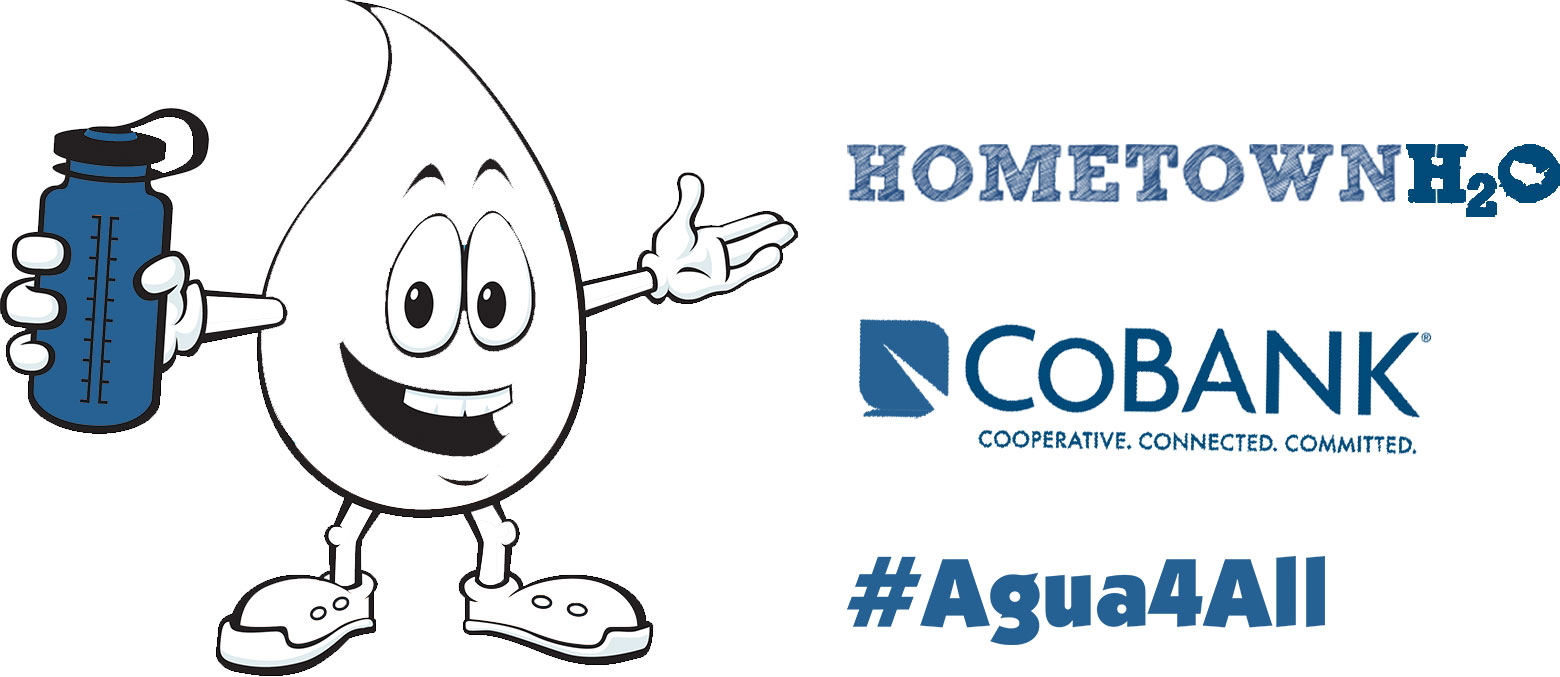Background/The Need
Access to affordable safe drinking water provides a foundation for healthy communities and schools, but millions of Americans still go without this access. Aging infrastructure and water quality issues continue to obstruct access to much needed clean water. Common contaminants such as arsenic, which is often naturally occurring, can cause cancer, thyroid problems, and other serious health issues. This is especially of concern for children, who are one of the most susceptible populations when it comes to the negative health impacts of poor water quality.
Agua4All Program Benefits
The Agua4All program provides safe drinking water in schools and communities by:
- Raising awareness about the importance of safe drinking water.
- Building community partnerships to install safe water taps in schools and neighborhoods where they’re needed most.
- Developing long-term solutions for rural water quality and access problems.
Agua4All can support specific projects to:
- Fund bottle filling stations in schools and key community sites to help access and deliver safe, appealing, and affordable drinking water through a fountain spout and/or by filling up reusable water bottles. In areas where safe water is not accessible, certified water treatment, like a Point-of-Use filter, can be installed to treat drinking water on-site.
- Fund reusable bottles for students and staff use to further encourage increased water consumption.
- Reduce disposable plastic bottle waste by encouraging tap water consumption and reusable water bottle use. Filling stations can include counters that measure impact showing reduced use of disposable plastic water bottles.
- Provide student and community education on local water quality issues and promote healthy beverage choices.
- Provide capacity building via training and technical assistance to school and community sites to ensure ongoing safe water access and the long-term operations and maintenance of newly added filling station and/or filter infrastructure.
- Ensure students stay hydrated, which has been linked to higher academic performance.
- Establish models and success stories for other schools, communities, funders and policy makers on how to access and promote safe water.
Impact
The California Endowment launched Agua4All in 2014 in partnership with nonprofit organizations Rural Community Assistance Corporation (RCAC), Community Water Center, and Pueblo Unido CDC. Since the program’s launch, RCAC’s team has installed 757 water bottle filling stations in 154 schools in 37 rural California communities, and 177 point-of-use arsenic filters throughout California. As the Rural Community Assistance Partnership (RCAP) Network’s western regional partner, RCAC’s work in piloting Agua4All has led to opportunities to expand the program to all six RCAP regions, including communities in Alabama, Massachusetts, Michigan, Missouri, Montana, North Dakota, Pennsylvania, South Dakota, Texas, Virginia, and Wisconsin. Additionally, Agua4All is expanding to South Carolina through additional support from Xylem and existing funders. Program expansion has been made possible through partnerships with CoBank, the Chris Long Foundation, the NFL Foundation, and Liquid IV. The program expansion has reached over 8,000 students, 33 schools, and installed 84 filling stations.
In early 2023, RCAP Solutions visited schools in Scranton, Pennsylvania, to present on the Agua4All program. Below is the testimonial video as well as the assembly recording.

Palermo Union Elementary School District Success Story
RCAC received a subgrant of $50,000 from RCAP awarded by the Chris Long Foundation’s Water Boys Initiative and Liquid IV to install 7 new drinking fountains and bottle filling stations on four PUESD campuses: Golden Hills Elementary School, Helen Wilcox Elementary School, Palermo Middle School, and Honcut Elementary School. With Hazel Critchfield as the technical assistance provider, the Chris Long Foundation project launched in February 2022 and concluded at the end of February 2023. This grant provided every student and staff member of PUESD with a reusable Nalgene water bottle, which displays the school district and funder logos.
Need more information?
Looking for assistance?
If you are interested in learning more about the Agua4All program, please fill out our contact form on our “Get Assistance” page.